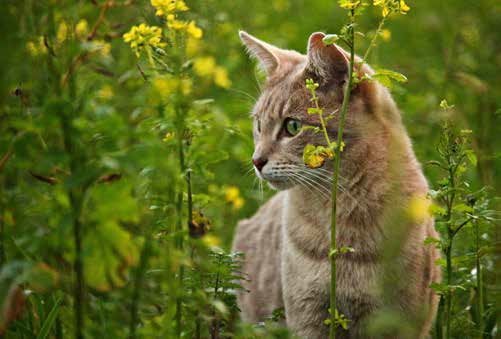Ways to Green Our Pets
Many pet owners will attest that having a cat or dog to cuddle can brighten their day. What they may not know is that it may also improve their health. A 2010 study from the University of Missouri School of Veterinary Medicine found that positive interactions with animals can raise levels of the hormone oxytocin, which helps encourage healing and new cell growth.
Since pets can be exposed to harmful toxins in their food, litter, and flea medicine, bringing green-living values to pet ownership may help extend the life of your beloved animal companion. Meanwhile, your pet-related purchases will also support the green economy.
If you don’t have a pet yet, adopting from a shelter is the greenest option. If you do have one, make sure to spay or neuter it. This helps to reduce the number of animals that end up homeless or living in shelters.
Choose organic foods and re-purposed doggie bags
After diet, pet waste is where your dog or cat has the most impact on the planet. No truly responsible pet owner takes a dog out for a walk without a plastic bag for pet waste tucked in a pocket. There are a lot of pet-waste bags out there that trumpet the fact that they’re “biodegradable” or “compostable” on their packaging, but since most bags are destined for the landfill, the biodegradable label doesn’t mean all that much.
When buried in a landfill and cut off from oxygen, even a biodegradable or compostable bag won’t degrade aerobically and turn into compost; instead, it’ll degrade very slowly and odoriferously, with the help of anaerobic bacteria. A better option is to repurpose the plastic bags that were used to package your clothing, food, or junk mail.
Even better, compost it
Perhaps the best option, however, is to forego the bags altogether and actually compost your pet’s waste. You don’t want to add dog or cat waste to the compost pile destined for your garden, because it can contain pathogens that aren’t safe on your food. However, you can set up a separate compost system for it that will reduce the volume of your pet’s waste by at least 50 percent, kill off most of the pathogens, and add nutrients to the soil, according to the US Department of Agriculture.
You can safely compost an herbivorous pet’s waste in your garden compost (i.e. rabbit, hamster, guinea pig, etc.).
Choose better litter
Conventional cat litter—clumping and non-clumping—is made from bentonite clay, which is extracted from the Earth through environmentally damaging strip mining. In addition, clay litter contains crystalline silica, a known carcinogen according to the World Health Organization
Clay litter is also near the end of its decomposition cycle, so if you try to compost waste with clay litter mixed in, the litter will just sit there. The solution: try natural, non-clay litters made from wheat or corn.
Prevent fleas naturally
Fleas are itchy nuisances, but flea collars and conventional flea shampoos usually contain pyrethrins and organophosphates, which are suspected neurotoxicants and carcinogens. To keep fleas at bay, tend your pet with a flea comb weekly. If you’re experiencing a full-out flea infestation in your home, head to Marlene’s for a bag of food-grade diatomaceous earth (DE). It’s made of the skeletons of deceased diatoms, a type of algae. Annie Bond, author of Home Enlightenment (Rodale Books 2008), recommends doing the following:
Though food-grade DE is safe for plants, pets, and humans, cover your mouth and nose and your pet’s to prevent uncomfortable inhalation. Then, rub it all over your pet’s fur, starting with the spine and working your way down. The fleas should die within 24-72 hours, though you may need to repeat every three days until they’re gone. Sprinkle DE across floors and carpets and surfaces. Leave it sitting for four days (best if you can leave the home), and then vacuum. Repeat if needed. Spread DE on lawns and outdoor surfaces to kill fleas outside, too.
Green is always in style
There are numerous green products available for your everyday pet needs. Find collars and leashes made from hemp or dog and cat toys from organic fibers, organic pet beds, and even reclaimed cotton dog sweaters, from certified green businesses at GreenPages.org.
Green America is a non-profit organization harnessing economic power to create a socially just and environmentally sustainable society. For more information, please visit greenamerica.org.











